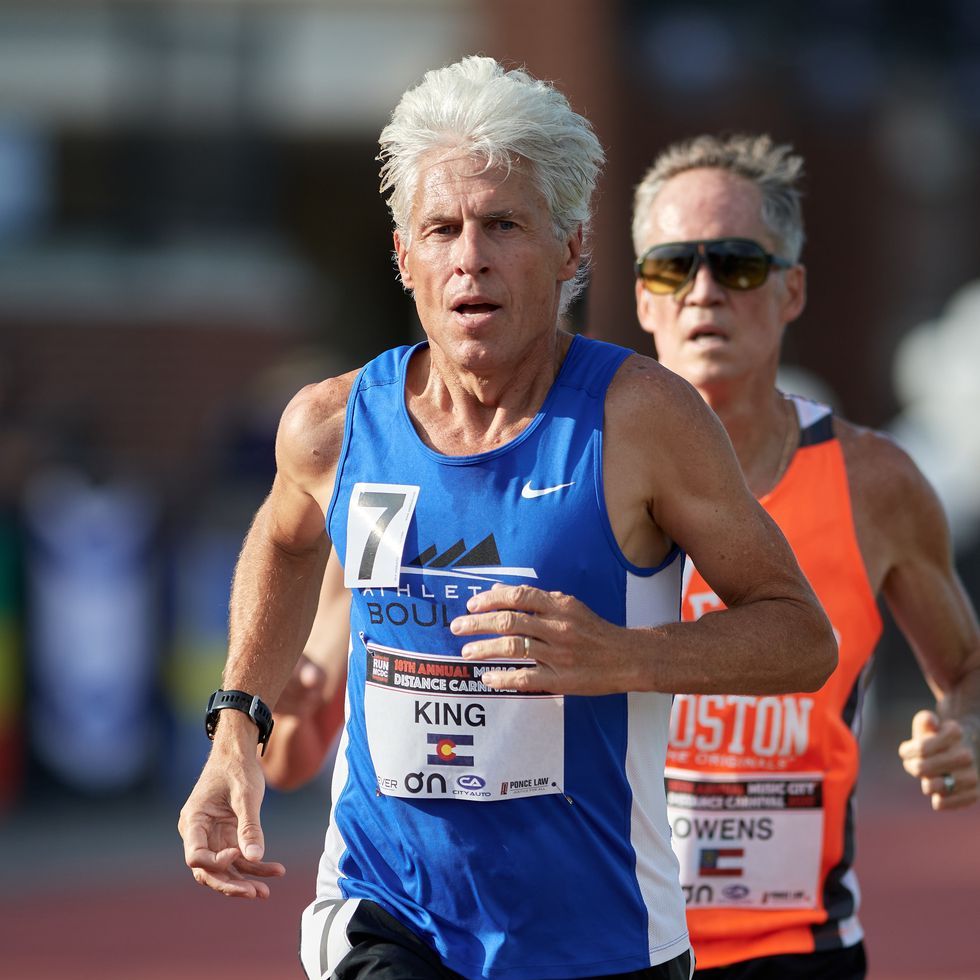
Dan King, 61, of Boulder, Colorado, ran the mile in 4:49:08 on August 29th at the South Carolina TrackFest. This tops the previous world record, set by Tony McManus of New Zealand in 2012, who ran the mile in 4:51.85.
Mr. King was interviewed by Runner’s World, and he said, “I felt fantastic at that pace. I’d lose all sorts of people if it was a slower race with a kick. But if I go all out at a pace I can sustain for one mile, and run evenly, I’m fast at that distance.”
Like most athletes, he struggled with injuries for years, which severely limited the amount of high intensity training he could undergo. At age 40, he had severe plantar fasciitis, which continued until he was 58 and had a Tenex procedure.
His training is structured on an eight day running schedule, with vigorous cross-training mixed in-between. His cross-training workouts include cycling, elliptical, strength training and deep-water running. Every fourth day he does a hard run. For example, Monday he’ll cross-train, Tuesday easy run, Wednesday cross-train and Thursday hard run. His easy runs are between 5.5 and 7 miles. His hard workouts are usually 300 meter intervals with a jog/walk in between reps.
When he turned 50 years old, King switched to a whole food plant-based diet. “I had a physical and bloodwork when I turned 50 just as I was making the dietary transition. My total cholesterol at the time was 180, and my blood pressure was OK, but not great. Three months later I had to get another physical to support an insurance policy. My cholesterol was down by almost 50 points and my blood pressure went into the ‘best category.’ I was pretty surprised by how much my values on all those things changed.”
In training, he uses the Hoka Carbon X shoes, which have a carbon fibre plate. He says this helps take the pressure off his big toes that have arthritis.
During the TrackFest race, he used Nike Dragonfly ZoomX shoes to break the world record.
King says, “My one piece of advice is expand your thinking about what it means to be a masters athlete as opposed to a masters runner,’ he said. ‘You have to train really hard, but you don’t have to run a ton of miles each week. Don’t lose sight of your own capacity to run at a high level even if you’re not willing or interested in being a 60 mile per week runner.”
